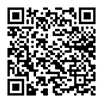Various types of trading accounts & demat accounts

A trading account is the foundation of one of the most significant partnerships with a broker. To hold, buy, and sell stocks in the stock exchange, you'll need to open a Demat account and a trading account. However, you must be familiar with several accounts, including a BO ID, a trading account, a Demat account, and the different forms of Demat accounts, separate groups of accounts, and so on.
A trading account is the foundation of one of the most significant partnerships with a broker. To hold, buy, and sell stocks in the stock exchange, you'll need to open a Demat account and a trading account. However, you must be familiar with several accounts, including a BO ID, a trading account, a Demat account, and the different forms of Demat accounts, separate groups of accounts, and so on.

Open a Demat Account
Demat Account Types
There are three basic types of Demat accounts:
- Regular Demat account: Indian traders use this kind of account.
- Repatriable Demat Account: This is a Demat account that helps Non-Resident Indians to move funds overseas. A Demat Account with an associated NRE bank account is needed.
- Non-Repatriable Demat Account: Non-Resident Indians may also open this account. However, funds cannot be exchange outside of the United States in this situation, and this account includes an associated NRO bank account.
Only trading account or only Demat account
The common assumption is that you would open both a trading and a Demat account simultaneously. You will only have one of these accounts open at a time. If you wish to invest in an IPO, for example, a Demat account is appropriate. The shares will add to your Demat account after they have been allotting to you. The only snag is that you won't sell the stock unless you have a trading account. If you're buying stocks solely for the sake of owning them for the long term, a Demat account will suffice. If you want to exchange futures and options, though, you don't need to open a Demat account. A trading account will suffice because F & O does not result in delivery. A Demat account is only required if you want to invest in stocks.
Commodity trading account and Equity trading account
Trading of equities, futures, and options is possible through your stock trading portfolio. Commodities are now unable to share with your existing stock trading portfolio. You'll need a new commodities trading account for your dealer, which you'll have to open with them. It is because a separate agency in the past controlled goods. The FMC was absorbed into SEBI just two years ago, and commodity sector control was taken under SEBI. As the regulator looks to merge the equities and commodities segments better, this could change. Currency futures can trade in your current stock trading portfolio, which is essential to remember.
Online trading accounts vs. offline trading accounts: 2-in-1 vs. 3-in-1
Let's start with the most basic classification. Traditional trading accounts that do not deliver internet trading are known as offline trading accounts. You can trade by calling or walking into your broker's office. Online accounts, on the other hand, allow you to trade over the internet. That means you can use your laptop, PC, or even your mobile to exchange from the convenience of your own home or office. An online account usually attracts lower brokerage and provides the dealer with a lot of convenience and flexibility.
Let's look at the differences between 2-in-1 and 3-in-1 trading accounts when we're on the subject of online trading accounts. The 2-in-1 trading account essentially combines the trading and Demat accounts. As a result, when you buy shares in your trading account, they are automatically transferred to your Demat account on T+2 day. When you sell shares, the debit to your Demat account is also smooth on the T+1 day. Brokers with banking activities within the company sell the 3-in-1 account. As a result of their banking interfaces, ICICI Securities, HDFC Securities, Axis Securities, and Kotak Securities can deliver 3-in-1 accounts. Though 2-in-1 accounts are needed to maintain a smooth relationship between trading and Demat, 3-in-1 accounts are not a significant benefit since most broking platforms enable you to pass funds into your trading account almost instantly.
Full-service trading accounts vs. discount broking accounts
With the rise of discount traders exchanging large volumes at a low rate, this distinction has gained attention in recent years. These low-cost brokers don't have analysis or additional consulting services. They only have simple trade execution, which allows them to provide services at a very low brokerage. Similarly, these discount brokers do not have an offline option for placing orders, except a call-and-trade service, which usually charges.
The full-service model would charge a higher brokerage fee, but it will provide a slew of additional services. The study, short-term calls, an advice desk, and consultants, for example, are available to assist you if you get trapped in a role. When you choose a full-service trading account over a basic discount broking account, you can get any of the following premium options. The asset trading account allows you to exchange on the NCDEX and the MCX, while the trading account will enable you to trade on the BSE and NSE. Remember that you'll need to open a separate grain trading account and a separate commodity Demat account if you want to trade commodities.
Recent Posts
